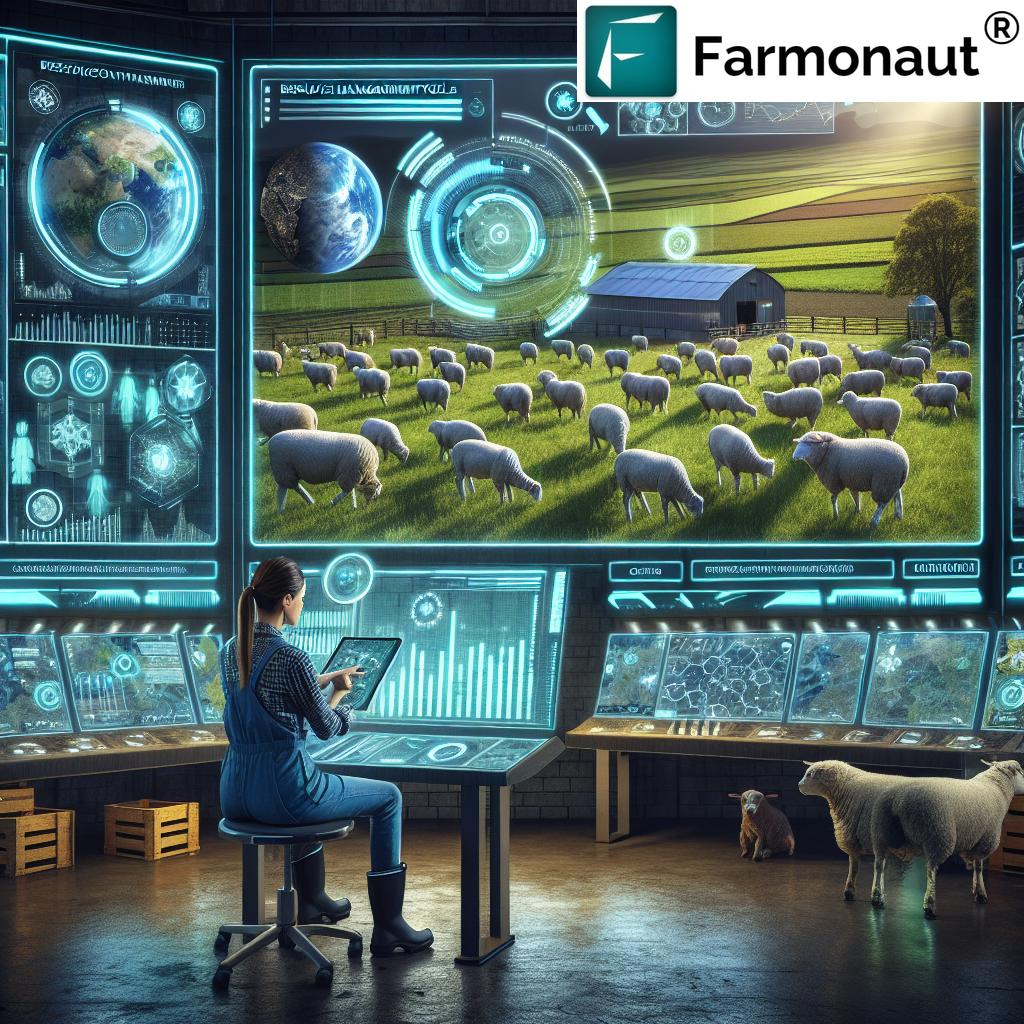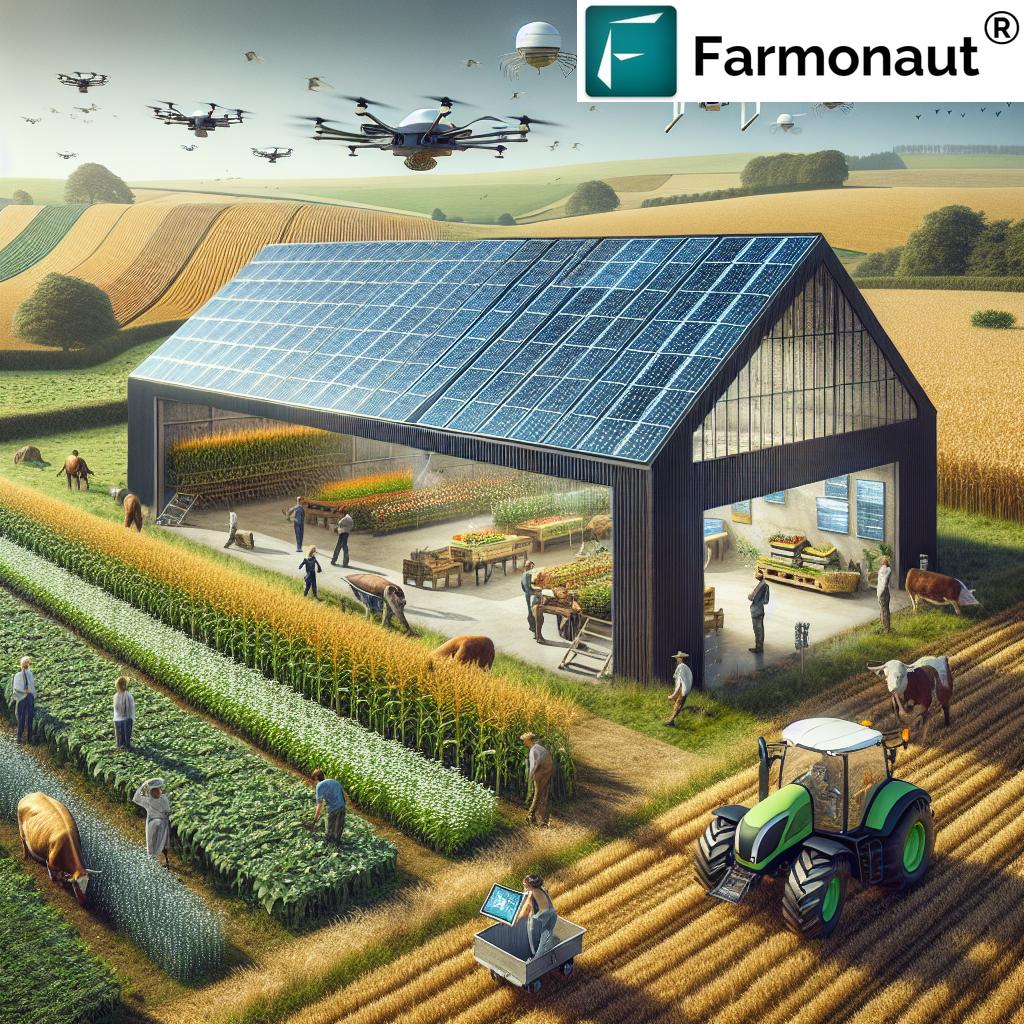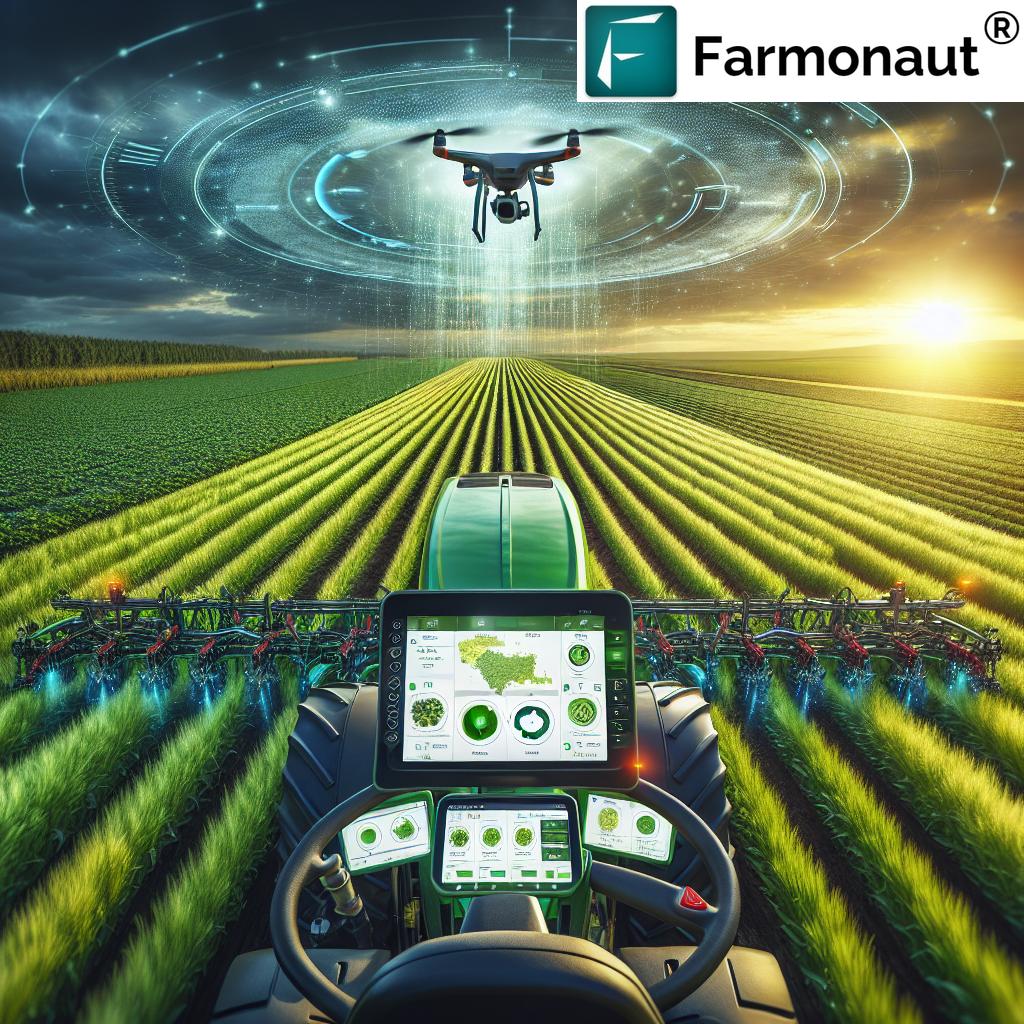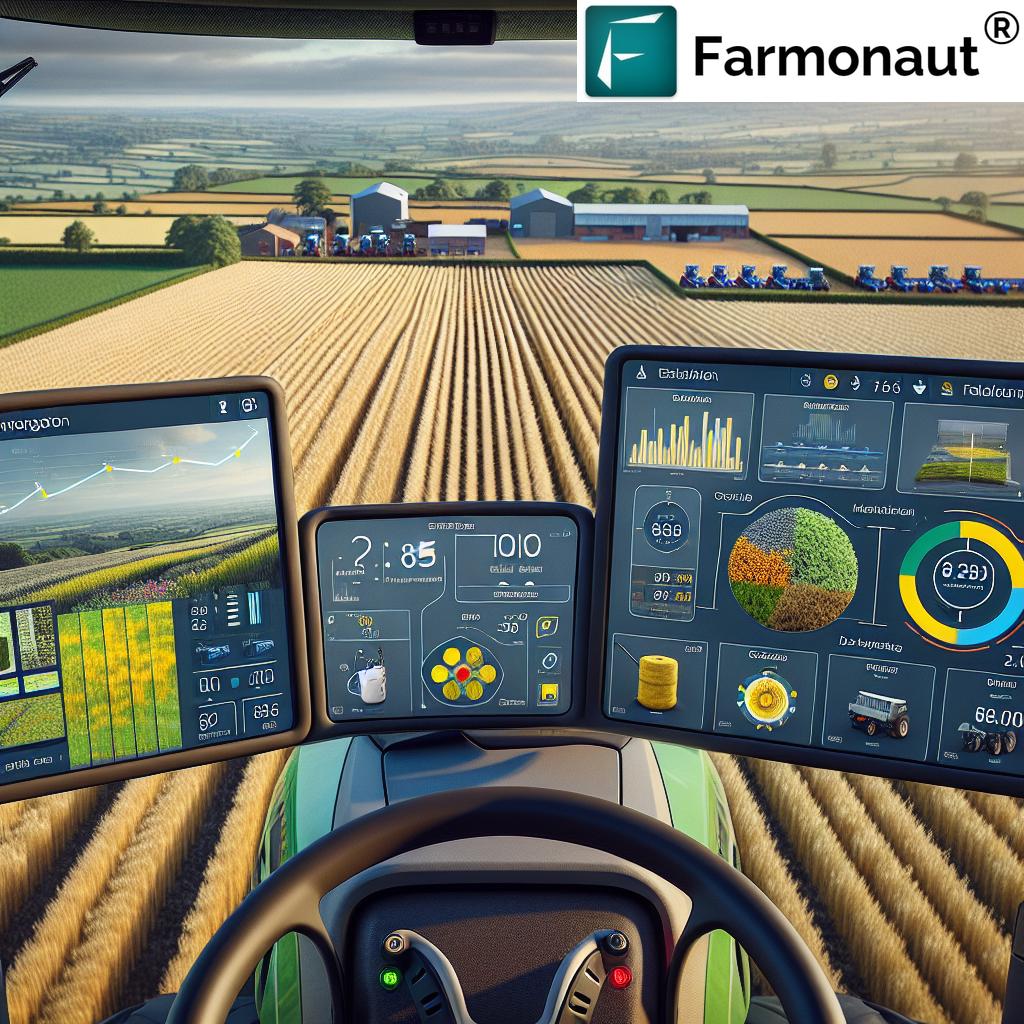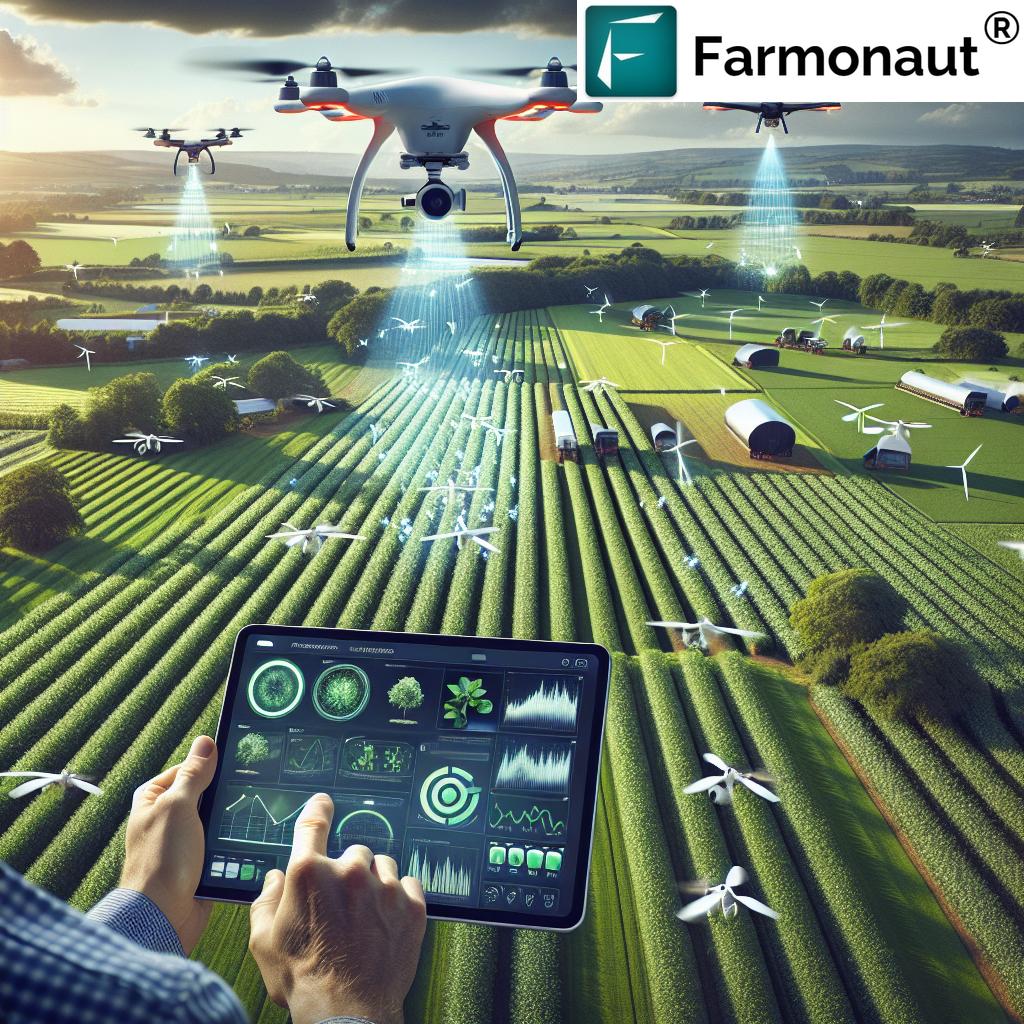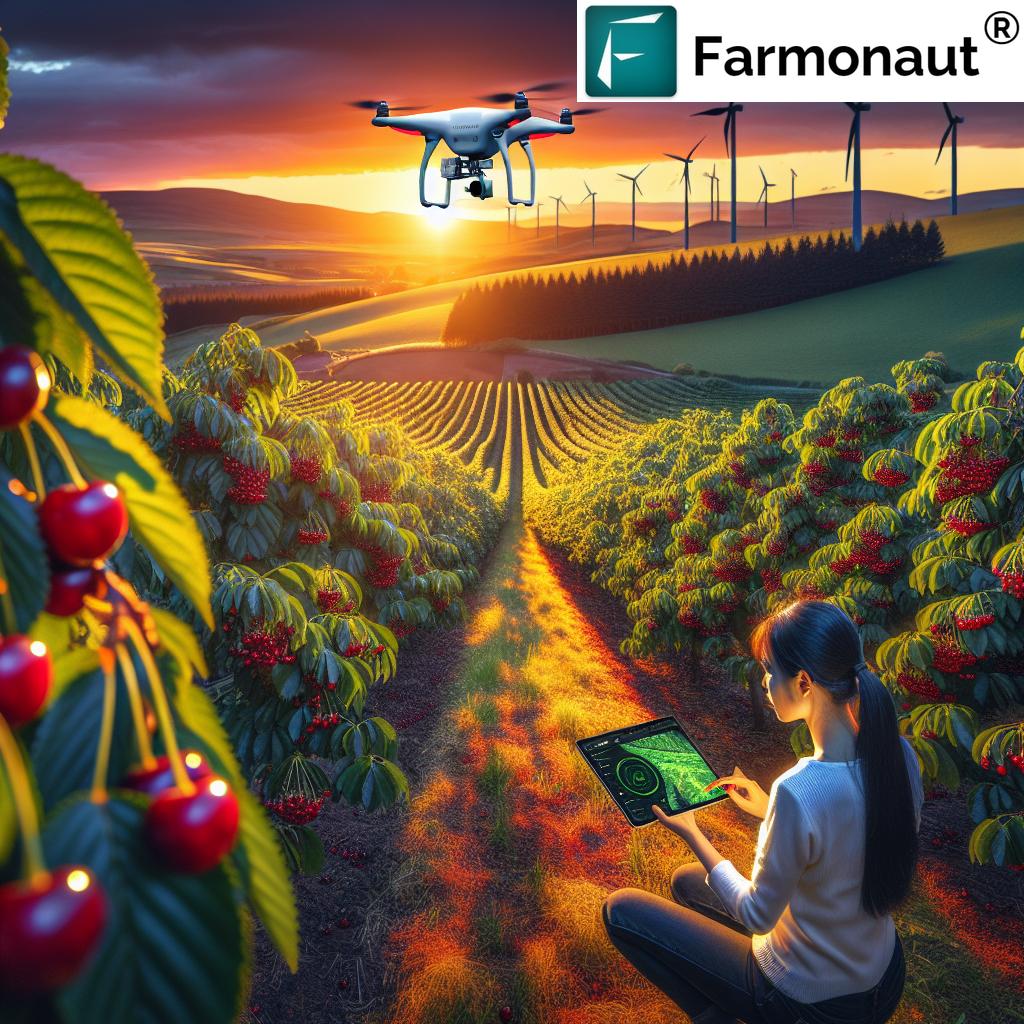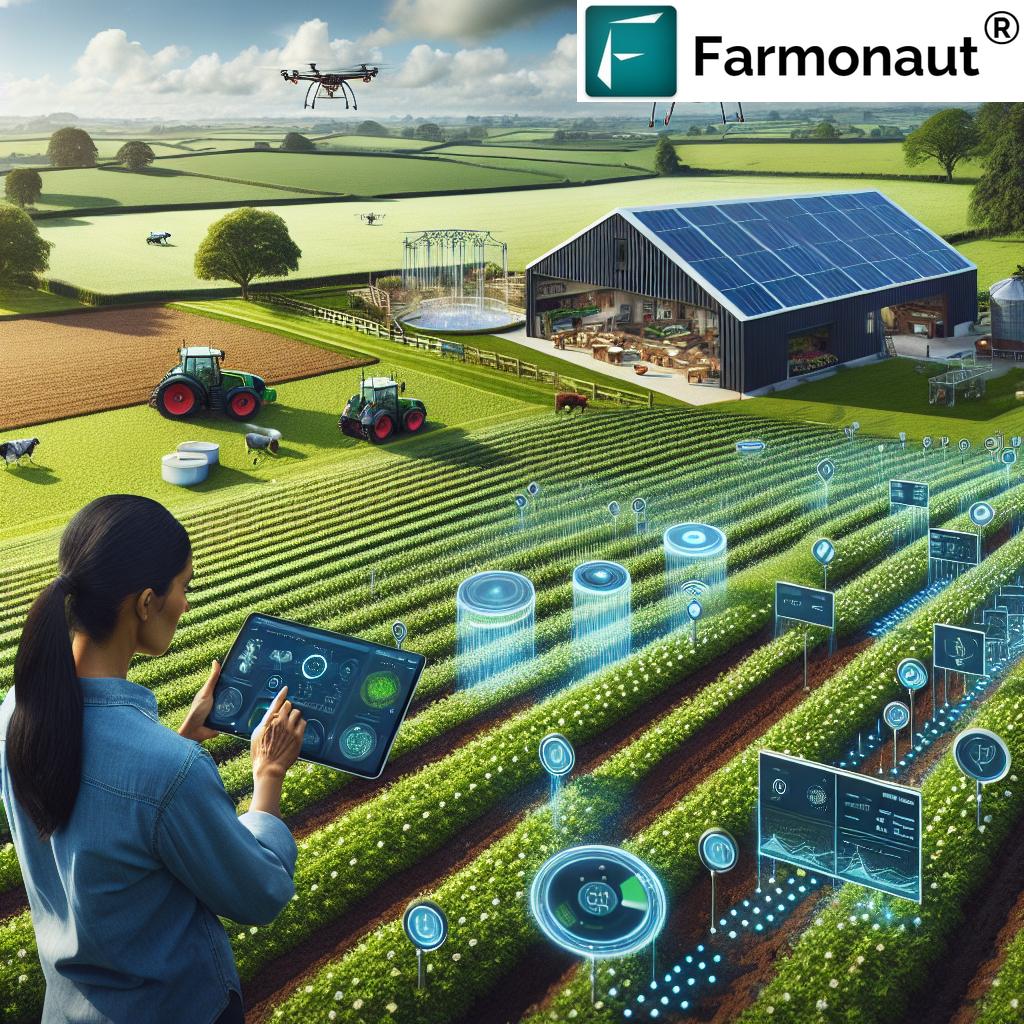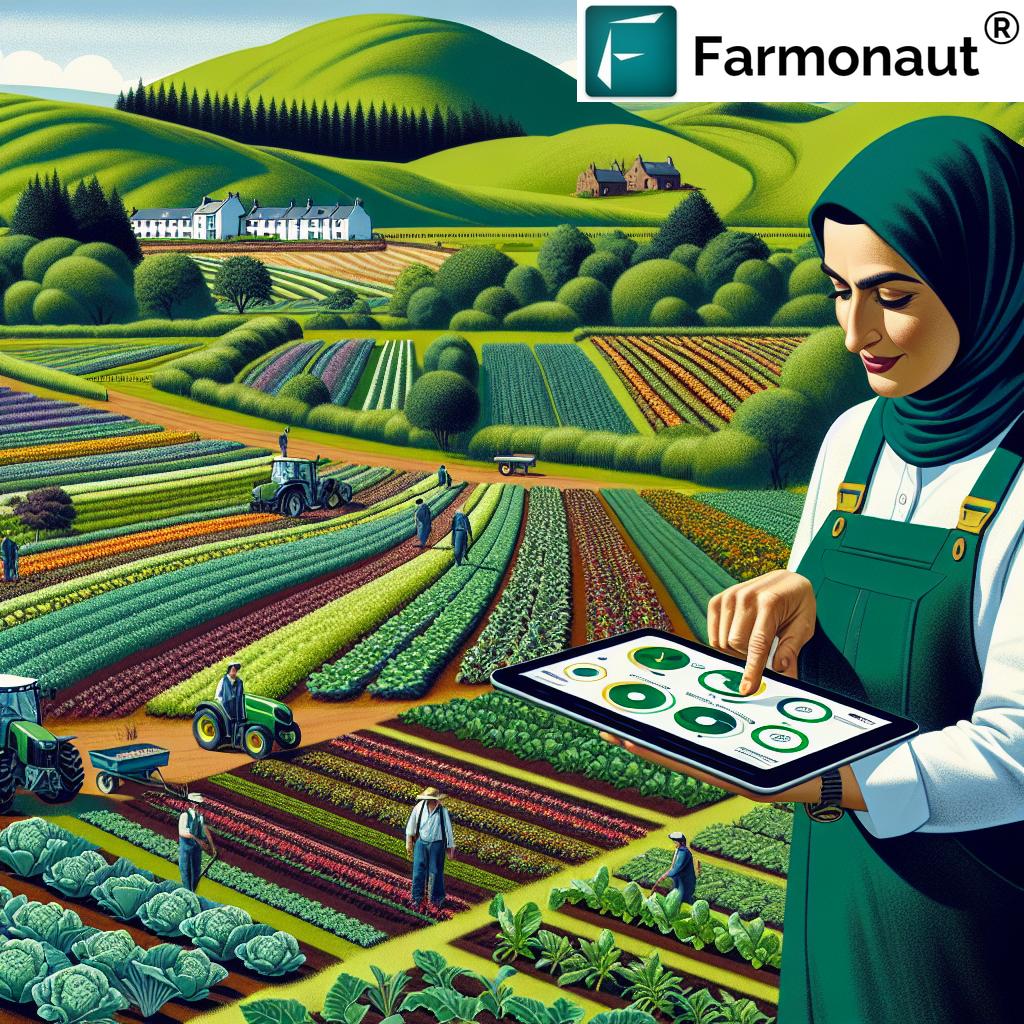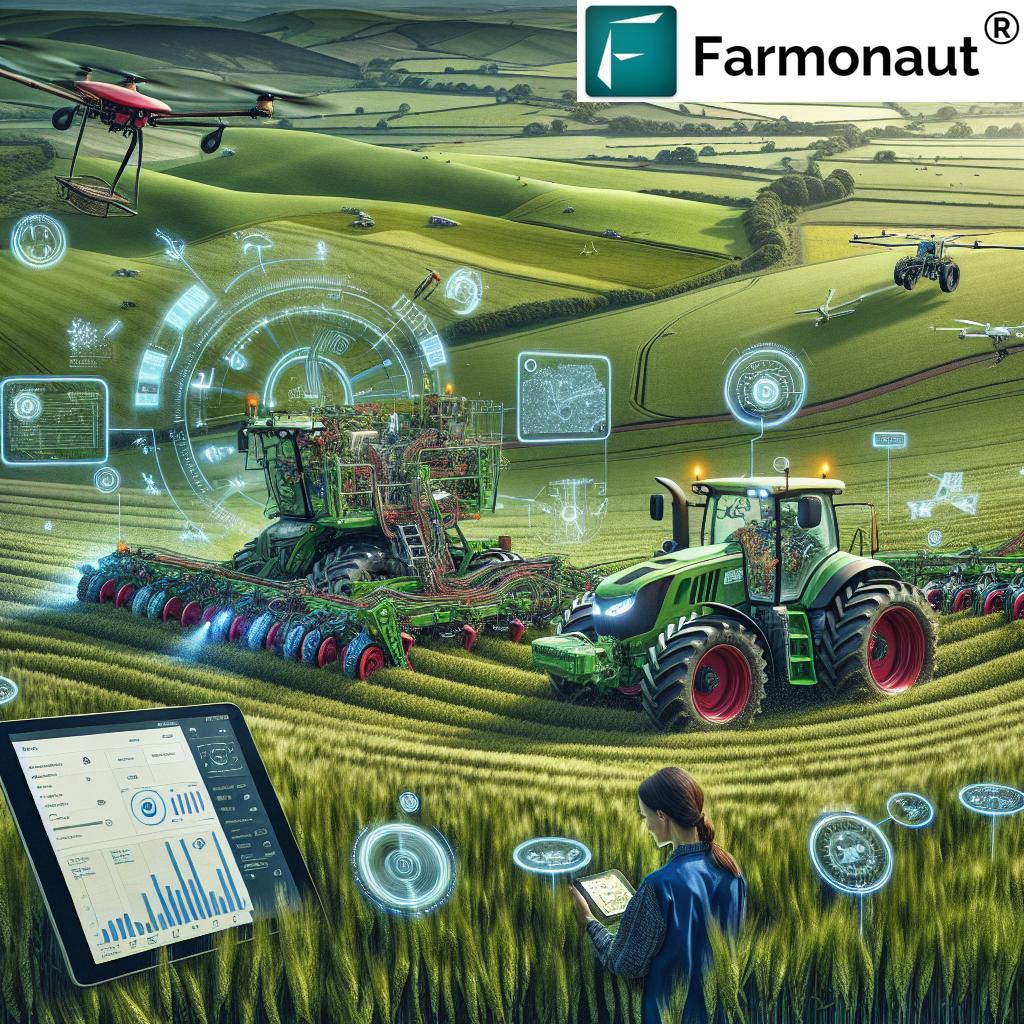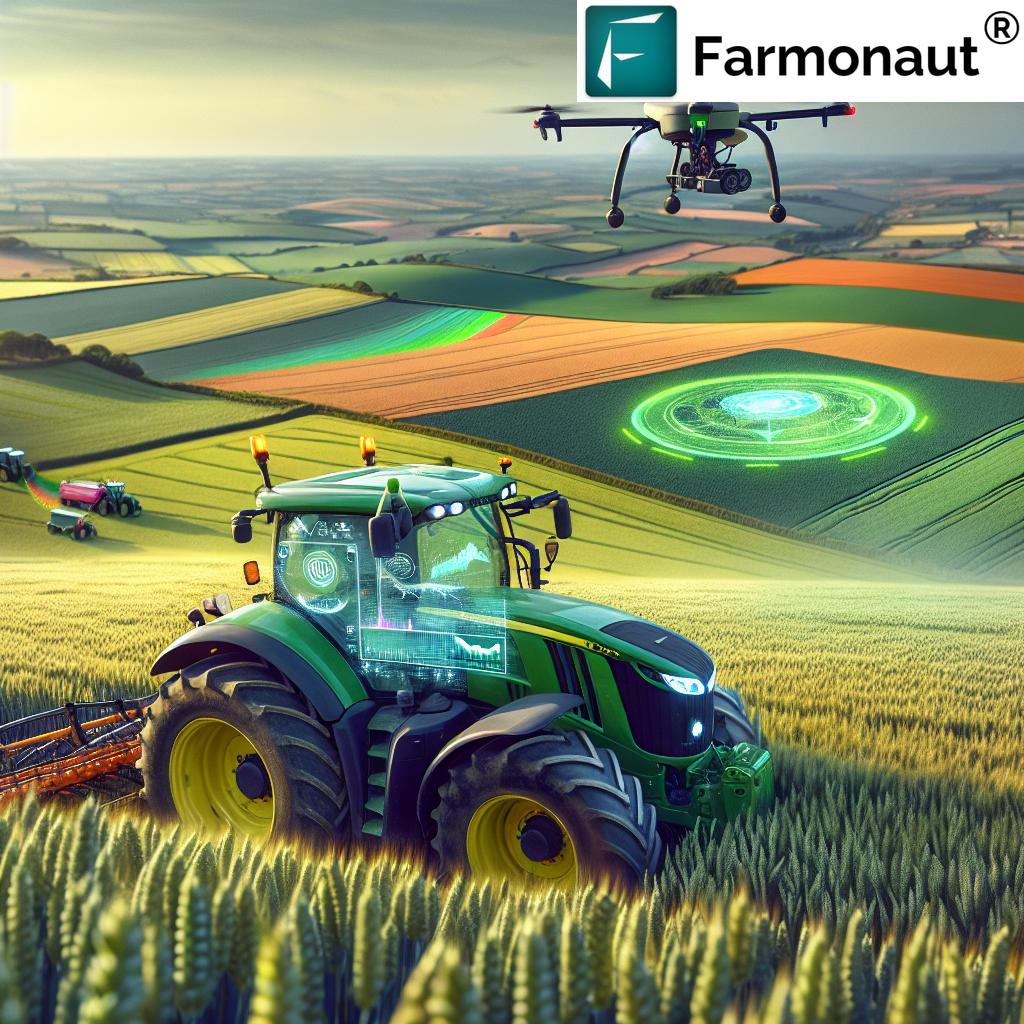UK’s Agricultural Revolution: Boosting Food Security with Sustainable Farming Strategies
“UK’s agricultural policy debate focuses on balancing domestic production with exports, impacting over 70% of the country’s land area.”
In the heart of the United Kingdom’s agricultural landscape, a revolution is brewing. As we face mounting pressures on our food systems, the need for a comprehensive and sustainable approach to farming has never been more critical. Our nation stands at a crossroads, with the opportunity to reshape our agricultural sector to meet the challenges of the 21st century head-on. In this extensive exploration, we’ll delve into the strategies, technologies, and policies that are set to transform UK agriculture, ensuring food security while championing sustainability.
The Call for a Strategic Food Plan
At the recent National Farmers Union (NFU) Conference in Birmingham, the retiring NFU president, Peter Kendall, made a compelling case for a long-term strategic food plan. This call to action resonates deeply with the challenges we face in our agricultural sector. The UK government is now under increasing pressure to develop and implement a comprehensive strategy that addresses not only food production but also the myriad factors that influence our agricultural landscape.
Key aspects of this strategic plan must include:
- Optimization of agricultural productivity
- Conservation of natural resources
- Implementation of sustainable agriculture practices
- Enhancement of food security strategies
- Balancing domestic production with export demands
As we move forward, it’s crucial to recognize that agriculture is not merely an extension of food production. It’s a pivotal element that intersects with various governmental policies, from immigration to taxation, and from research funding to disease control measures for imports.
The Green Agricultural Revolution
The UN High Level Panel on Global Sustainability has called for a new era of green agricultural practices. This “new green revolution” aims to achieve a remarkable feat: doubling agricultural productivity while simultaneously reducing resource consumption and mitigating losses in biodiversity, topsoil, and water resources.
To realize this vision, we must focus on:
- Developing and adopting green farming technologies
- Implementing advanced crop rotation techniques
- Investing in precision agriculture solutions
- Enhancing farm management systems
- Utilizing agtech for resource conservation
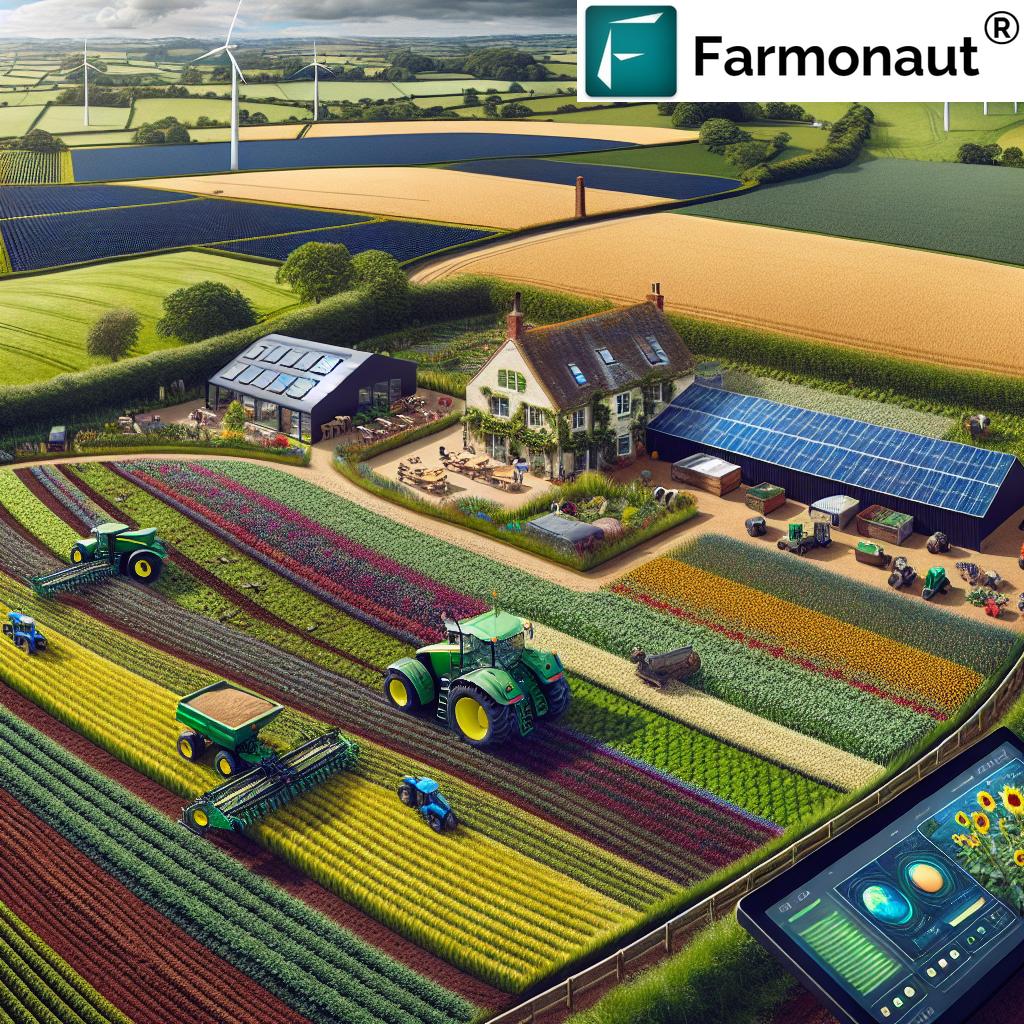
In this context, innovative technologies play a crucial role. For instance, Farmonaut’s satellite-based farm management solutions offer farmers real-time insights into crop health, enabling them to make data-driven decisions that optimize resource use and improve yields.
Challenges in UK Agricultural Policy
As we navigate this agricultural revolution, we must address several key challenges in UK agricultural policy:
- Immigration Concerns for Seasonal Workers: The agricultural sector heavily relies on seasonal workers, many of whom come from abroad. Stricter immigration policies could significantly impact farm labor availability.
- European Union Regulations: Despite Brexit, many EU regulations still influence UK farming practices. The “greening rules” introduced in the Common Agricultural Policy reforms have been particularly contentious.
- Balancing Production and Exports: With the UK’s self-sufficiency in food production at just 62%, there’s a delicate balance to strike between boosting domestic production and maintaining crucial export markets.
- Investment in Agricultural Research: Adequate funding for agricultural research and innovation is essential to drive the sector forward and develop sustainable farming solutions.
The Role of Precision Agriculture
“Precision agriculture solutions could potentially increase UK crop yields by up to 15% while reducing water usage by 30%.”
Precision agriculture stands at the forefront of our agricultural revolution. By leveraging cutting-edge technologies, we can optimize resource use, increase yields, and reduce environmental impact. Key components of precision agriculture include:
- Satellite-based crop monitoring
- AI-driven farm management systems
- IoT sensors for real-time data collection
- Drone technology for field mapping and crop assessment
- Variable rate application of inputs
Platforms like Farmonaut’s API are making these advanced technologies accessible to farmers of all scales, democratizing access to precision agriculture tools.
Sustainable Farming Strategies
To achieve our goals of increased productivity and sustainability, we must embrace a range of sustainable farming strategies:
- Advanced Crop Rotation: Moving beyond the controversial three-crop rule, we need to implement scientifically-backed rotation systems that improve soil health and reduce pest pressures.
- Conservation Agriculture: Minimizing soil disturbance, maintaining soil cover, and diversifying crop species can significantly enhance soil health and biodiversity.
- Agroforestry: Integrating trees and shrubs into croplands and pastures can improve soil fertility, provide habitat for wildlife, and create additional income streams.
- Precision Nutrient Management: Using data-driven approaches to apply fertilizers and amendments only where and when they’re needed, reducing waste and environmental impact.
- Water Conservation Techniques: Implementing efficient irrigation systems and water-saving practices to reduce the agricultural sector’s water footprint.
These strategies not only contribute to sustainability but also align with the broader goals of enhancing food security and optimizing agricultural productivity.
Investing in Agricultural Research and Innovation
To drive our agricultural revolution forward, we must significantly increase investment in agricultural research and innovation. This includes:
- Developing drought-resistant crop varieties
- Researching sustainable pest management techniques
- Advancing soil health sciences
- Innovating in farm machinery and automation
- Exploring novel food production methods, such as vertical farming and cellular agriculture
By fostering a robust research ecosystem, we can ensure that UK agriculture remains at the cutting edge of global agricultural innovation.
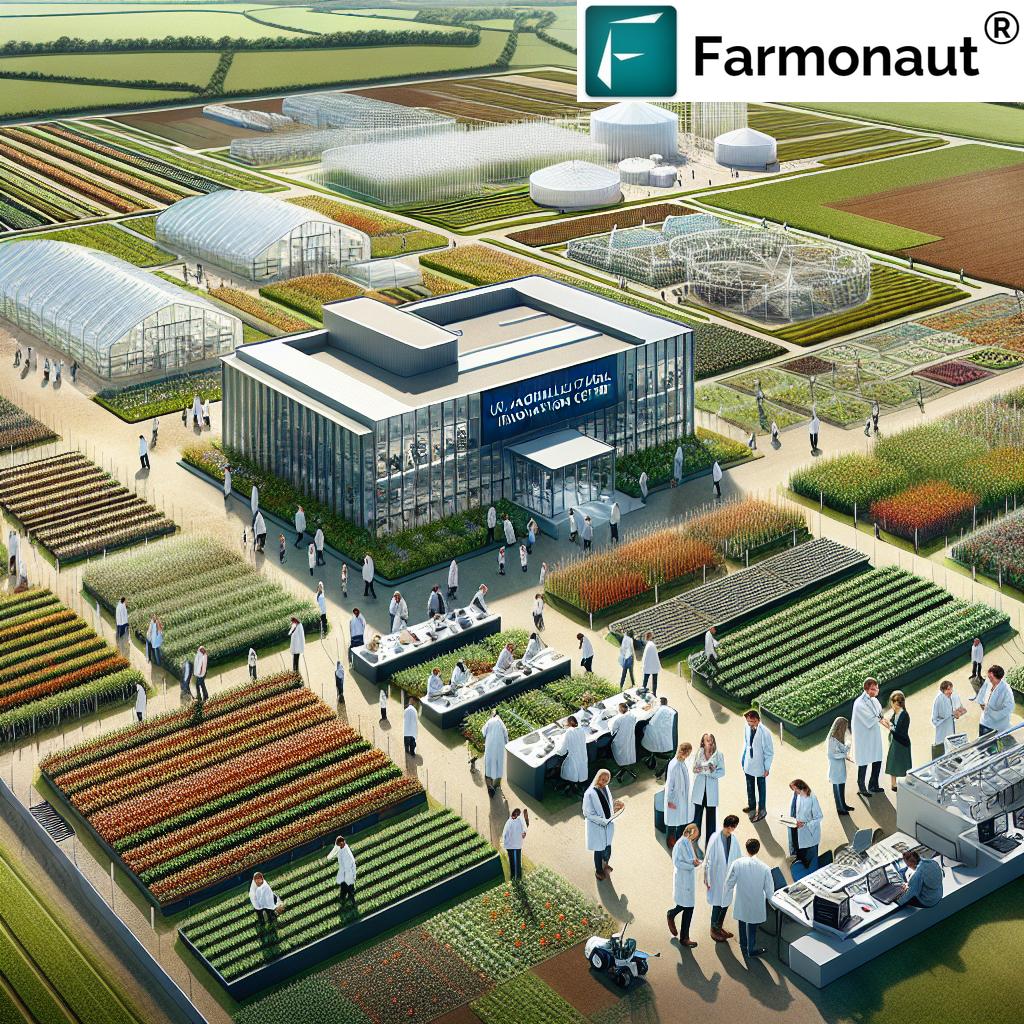
Balancing Domestic Production and Exports
While increasing domestic food production is crucial for food security, we must not overlook the importance of agricultural exports. A balanced approach that strengthens both domestic and export markets can:
- Provide economic stability for farmers
- Encourage investment in local production
- Maintain the UK’s position in global agricultural trade
- Drive innovation through international competition
Looking to successful international models, such as Ireland’s Food Harvest 2020 initiative, can provide valuable insights for balancing these priorities effectively.
The Future of Farm Management Systems
As we move towards a more technologically-driven agricultural sector, advanced farm management systems will play a pivotal role. These systems integrate various technologies to provide comprehensive solutions for farmers:
- Real-time crop monitoring and analysis
- Predictive analytics for yield forecasting
- Automated machinery scheduling and management
- Supply chain integration and traceability
- Financial management and reporting tools
Platforms like Farmonaut’s API Developer Docs provide the foundation for developers to create innovative farm management solutions, further driving the sector’s technological advancement.
Agtech for Resource Conservation
The efficient use of resources is at the heart of sustainable agriculture. Agtech solutions are playing a crucial role in resource conservation:
- Smart Irrigation Systems: Using soil moisture sensors and weather data to optimize water use.
- Precision Fertilizer Application: Applying nutrients based on detailed soil analysis and crop needs.
- Energy-Efficient Farm Equipment: Developing and adopting machinery that reduces fuel consumption and emissions.
- Waste Reduction Technologies: Implementing systems to minimize post-harvest losses and optimize resource use.
- Carbon Sequestration Monitoring: Using remote sensing to track and incentivize carbon sequestration in agricultural soils.
These technologies not only conserve resources but also contribute to the overall sustainability and profitability of farming operations.
UK Agricultural Sustainability Strategies Comparison
| Strategy Name | Primary Focus | Estimated Impact on Food Security | Implementation Complexity | Potential Yield Increase | Resource Conservation Benefit | Alignment with EU Regulations | Investment Required (£) | Adoption Timeline |
|---|---|---|---|---|---|---|---|---|
| Advanced Crop Rotation | Soil Health | High | Medium | 10-20% | High | High | 50,000-200,000 | Medium Term |
| Precision Agriculture | Resource Optimization | High | High | 15-30% | High | Medium | 100,000-500,000 | Short to Medium Term |
| Agroforestry | Biodiversity | Medium | High | 5-15% | High | High | 200,000-1,000,000 | Long Term |
| Conservation Agriculture | Soil Conservation | Medium | Medium | 10-25% | High | High | 75,000-300,000 | Medium Term |
| Smart Irrigation Systems | Water Conservation | Medium | Medium | 10-20% | High | Medium | 50,000-250,000 | Short Term |
The Role of Government and Policy
For our agricultural revolution to succeed, supportive government policies are essential. Key areas for policy focus include:
- Incentivizing sustainable farming practices
- Streamlining regulations to encourage innovation
- Providing financial support for farm modernization
- Developing programs to attract and train the next generation of farmers
- Establishing frameworks for carbon trading and ecosystem services payments
By aligning policies with the goals of sustainability and food security, the government can create an environment conducive to agricultural innovation and growth.
The Impact of Climate Change
As we consider the future of UK agriculture, we cannot ignore the looming challenge of climate change. Our agricultural strategies must account for:
- Changing precipitation patterns
- Increased frequency of extreme weather events
- Shifts in pest and disease pressures
- Alterations in crop suitability for different regions
Adapting to these changes will require a combination of innovative farming practices, resilient crop varieties, and flexible management strategies. Tools like Farmonaut’s Android app and iOS app can help farmers stay informed about changing weather patterns and make timely decisions.
The Role of Artificial Intelligence in Agriculture
Artificial Intelligence (AI) is set to play a transformative role in the future of UK agriculture. AI applications in farming include:
- Predictive analytics for crop yield and market trends
- Automated pest and disease detection
- Robotic systems for planting, harvesting, and sorting
- Personalized crop management recommendations
- Supply chain optimization and demand forecasting
By harnessing the power of AI, we can make our agricultural systems more efficient, productive, and responsive to changing conditions.
Conclusion: A Vision for UK Agriculture
As we stand on the brink of this agricultural revolution, our vision for UK agriculture is clear: a sector that is productive, sustainable, and resilient. By embracing innovative technologies, implementing sustainable farming practices, and fostering a supportive policy environment, we can ensure food security for generations to come while preserving our natural resources.
The path forward requires collaboration between farmers, researchers, policymakers, and technology providers. Together, we can create an agricultural sector that not only meets the needs of our nation but also serves as a model for sustainable food production worldwide.
As we move forward, platforms like Farmonaut will continue to play a crucial role in driving this revolution, providing farmers with the tools and insights they need to thrive in this new era of agriculture.
FAQ Section
Q: What are the main challenges facing UK agriculture today?
A: The main challenges include climate change impacts, balancing domestic production with exports, addressing labor shortages, implementing sustainable practices, and adapting to post-Brexit regulations.
Q: How can precision agriculture benefit UK farmers?
A: Precision agriculture can help UK farmers optimize resource use, increase yields, reduce environmental impact, and make data-driven decisions for more efficient farm management.
Q: What role does government policy play in agricultural innovation?
A: Government policy is crucial in incentivizing sustainable practices, providing research funding, streamlining regulations, and creating a supportive environment for agricultural innovation and growth.
Q: How can farmers access and implement new agricultural technologies?
A: Farmers can access new technologies through platforms like Farmonaut, which offer user-friendly apps and APIs for implementing precision agriculture solutions. Additionally, government programs and agricultural extension services can provide support and training.
Q: What are the potential benefits of investing in agricultural research and innovation?
A: Investing in agricultural research and innovation can lead to increased productivity, improved sustainability, enhanced food security, new export opportunities, and the development of climate-resilient farming practices.








